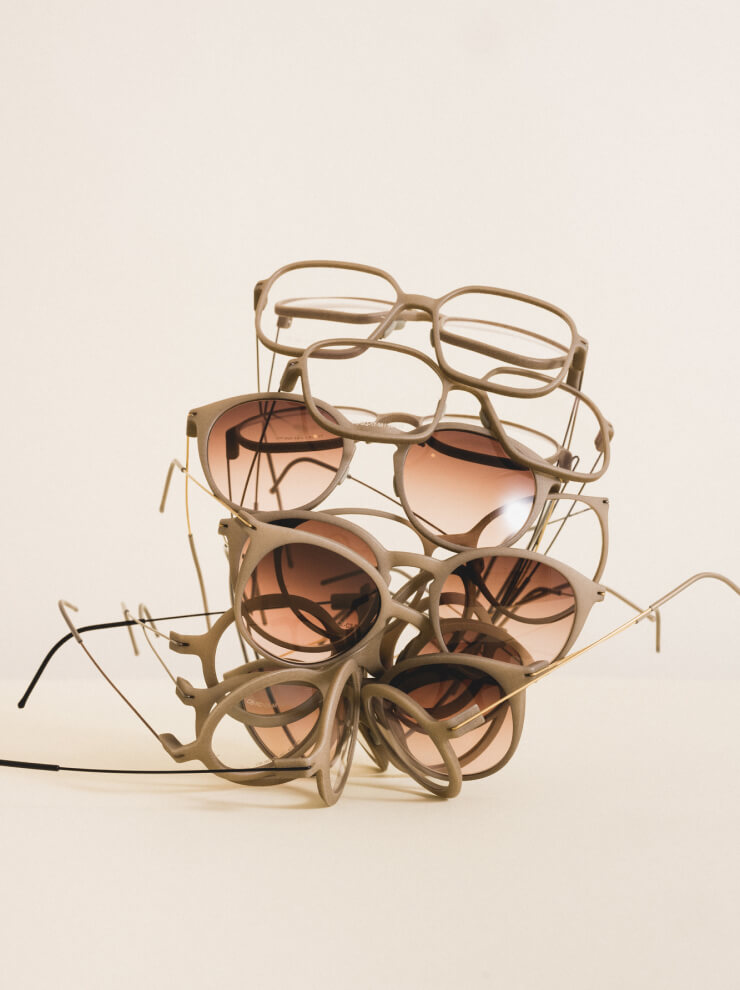
To achieve this, we implement intelligent manufacturing practices that minimise waste and overproduction while ensuring the highest quality possible. Our glasses are designed to be timeless and durable so that you can enjoy them for many years.

Our temples are made of Japanese titanium and are cut, bent, and finished with near zero waste.
Our production process doesn’t involve speculative overproduction. We don’t create products in large quantities without knowing if they will sell. This practice is wasteful and harmful to the environment. This allows us to manage material waste, keep a low inventory, and have a just-in-time supply chain that significantly reduces waste and environmental impact.


When you design light, you use less material, generate less waste, and lower carbon emissions. With plant-based 3D printing, our printed material is 20% lighter than other 3D printing powders. Additionally, our Temples are significantly lighter than what’s available in the market.
Our frames weigh less than 4 grams, lighter than a sheet of paper. This reduces waste and provides greater comfort while being more environmentally friendly.


We use a sustainable 3D printing process that adds material only where needed, rather than cutting it away from a block like traditional milling. Additionally, we use partially recycled plant-based nylon as the material and repurpose any leftover powder for the next production cycle. Our temples are made from titanium wire and are cut, bent, and shaped in-house with minimal waste. In fact, from a 10-kilometre batch, we’re left with only a few centimetres of leftover material, which is remarkable.
